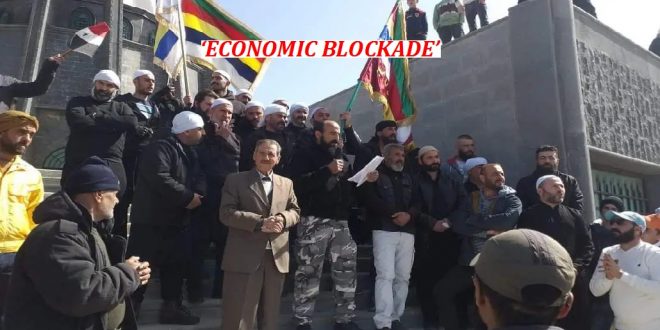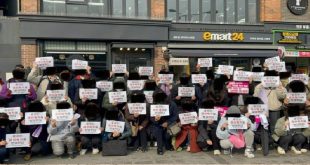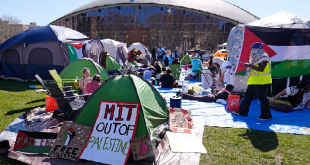22-04-2022
DAMASCUS: Anti-government protests are no longer common in areas of Syria under the control of President Bashar al-Assad.
Protesters who took to the streets against him in the uprising that began in 2011 are now either cowed into silence, displaced, exiled, imprisoned, or worse.
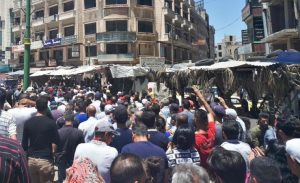 Yet, in the Druze-majority city of Sweida, in the south of the country, near the Jordanian border, protests last February indicated growing anger in Syria at corruption and worsening living conditions.
Yet, in the Druze-majority city of Sweida, in the south of the country, near the Jordanian border, protests last February indicated growing anger in Syria at corruption and worsening living conditions.
The Syrian government’s decision to stop subsidies for bread, diesel, cooking gas, petrol, and other essential items, for hundreds of thousands of people, triggered outrage.
Coupled with the continued collapse of the Syrian pound, and skyrocketing inflation, it was enough to convince thousands of people in Sweida to take to the streets and risk the same kind of repression that was meted out to Syrian protesters in 2011.
The difference has been, this time that it was Sweida that rose up in anger, while other areas remained quiet.
As Druze, the majority of Sweida’s residents are from a minority religious sect, and since 2011, most of them have taken a relatively neutral stance towards the country’s uprising-turned-war.
The Druze in Sweida appear to be more willing to protest now.
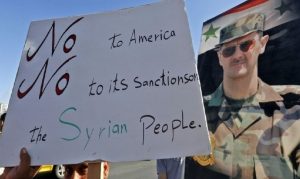 “In the earlier years of the crisis, we were put in a difficult spot between wanting change and preserving our area,” Hadi Abu al-Joud, a Druze student activist, told media.
“In the earlier years of the crisis, we were put in a difficult spot between wanting change and preserving our area,” Hadi Abu al-Joud, a Druze student activist, told media.
Abu al-Joud explained that many people in Sweida were initially sympathetic to the opposition, but concerned about various wings of the armed opposition that had targeted Druze people.
A struggling economy
Years of war, the coronavirus pandemic and sanctions continue to batter Syria’s economy. According to the United Nations, 90 percent of the country lives in poverty, while 60 percent are at risk of going hungry.
With the Syrian economy deeper in the mire, al-Assad’s government continues to slash its budget, falling from about $9bn in 2020 to $5.3bn for 2022.
Swiss-Syrian professor at the European University Institute in Florence, Joseph Daher, said that crumbling infrastructure would continue to exacerbate tough living conditions in Sweida, with 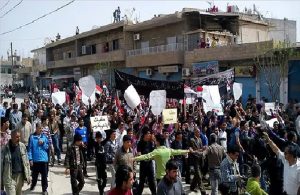 electricity cuts, damaged sanitation infrastructure, and a lack of spare parts causing water shortages.
electricity cuts, damaged sanitation infrastructure, and a lack of spare parts causing water shortages.
“It’s not only because of the sanctions [on the Syrian government],” Daher told media “but it’s also because businesses selling those parts involve regime officials and businessmen close to the regime.”
The Syrian government has imposed what Abu al-Joud called an “economic blockade” on Sweida as a punishment for the protests, worsening inflation and making it more challenging for families to secure even the most basic groceries.
“The prices of groceries and basic goods keep on increasing,” Abu al-Joud explained. “The price of a kilogram of tomatoes can sometimes reach 5,000 Syrian pounds ($2), while it’s cheaper in other parts of the country.” (Int’l News Desk)
 Pressmediaofindia
Pressmediaofindia
